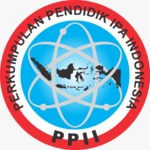Pembelajaran Fisika melalui Virtual Laboratory Berbasis Phet Simulation untuk Meningkatkan Keterampilan Proses Sains Mahasiswa Pada Materi Listrik
DOI:
https://doi.org/10.29408/kpj.v6i1.5542Keywords:
Physics learning, virtual laboratory, PHET simulation, science process skillsAbstract
The purpose of this research is to analyze the improvement of students' science process skills through a virtual laboratory based on PHET simulation on electrical materials. This study is a quantitative study using a quasi-experimental nonequivalent control group design. This research was conducted for 6 months on second-semester students, totaling 140 students. The instruments in this research are observations, interviews, and tests. The increase in science process skills was analyzed using the N-Gain value. The results of the analysis show that learning physics through a virtual laboratory based on PHET simulation is proven to improve students' science process skills. The improvement of science process skills in the experimental class was better than in the control class.
References
Carpenter, Y., Perkins, K. and Loeblein, P. (2021) PhET Interactive Simulations for teaching and learning in Earth and Energy Sciences. Earth Educators’ Rendezvous.
Çelik, B. (2021). The Effects of Computer Simulations on Students’ Science Process Skills: Literature Review. Canadian Journal of Educational and Social Studies. Vol 2 (1): 16-28.
Dantic, M.J. (2021). Sci-Art: Visual art approach in Astrnomoy of teacher education students. American Journal of Mulidisciplinary Reserch & Development. Vol 3 (10): 12-19.
Doyan, A., Gunawan, G., Susilawati, Khasanah, B., & Muliyadi, L. (2020). The effectiveness of quantum phenomenon learning media with think pair share model implementation on understanding concept of students. Journal of Physics: Conference Series, 1521, 22037. https://doi.org/10.1088/1742- 6596/1521/2/022037.
El-Seoud, M. S. A., Taj-Addin, I. T. F., Seddiek, N., El-Khouly, M. M., Nosseir, A. (2014). E-learning and students’ motivation: a research study on the effect of e-learning on higher education. International Journal of Emerging Technologies in Learning (iJET), 9 (4), 20-26.
Fatimah, S. (2016). Pengaruh Pembelajaran IPA menggunakan Project Based Learning (PjBL) dan Seven Jumps terhadap keterampilan Proses dan Karakter Sains Peserta Didik Pada Materi Peristiwa Alam. Prosiding Seminar Nasional Inovasi Pendidikan Inovasi Pembelajaran Berbasis Karakter dalam Menghadapi Masyarakat Ekonomi ASEAN. 160-172.
Hake, R.R. (2007). Design-Based Research in Physics Education Research.: NSF Grant DUE.
Haryadi, R., & Pujiastuti, H. (2019). PhET simulation software-based learning to improve science process skills. International Conference on Mathematics and Science Education. 1521. 1-6.
Jannah, M., Subiki, & Lesmono, A.D. (2013). Model Pembelajaran Kooperatif Melalui Lesson Study Disertai Metode Demonstrasi Pada Pembelajaran Fisika Di SMA. Jurnal Pembelajaran Fisika Universitas Jember.
Kastrup, H. Mallow, J V., Connolly, J W., Ramayanti, S., Utari, S., & Saepuzaman, D. (2017). Improving Students’ Science Process Skills through Simple Computer Simulations on Linear Motion Conceptions. J. Phys. Conf. Ser. 812 1 p 012017.
Krobthong, T. (2015). Teaching University Physics by using Interactive Science Simulations methods. Procedia - Soc. Behav. Sci. 197 February pp 1811–1817.
Maison, Darmaji, Kurniawan, D.A., Astalini, Dewi, U.P., & Kartina, L. (2019). Analysis of Science Process Skills in Physics Education Students. Jurnal Online Internasional & Nasional. Vol. 7 No.1, Januari – Juni 2019 Universitas 17 Agustus 1945 Jakarta 23 (2): 197–205.
Mustakim, Z., Fatimah, S., & Mahmudah, U. (2021). Students‘ perception and motivation on e-learning during the COVID-19 pandemic. In S. Jackowicz & I. Sahin (Eds.), Online Education during the COVID-19 Pandemic: Issues, Benefits, Challenges, and Strategies (pp. 59-80). ISTES Organization.
Najib, M.N.M., Md-Ali, R., & Yacob, A. (2022). Effects of Phet Interactive Simulation Activities on Secondary School Students’ Physics Achievement. South Asian Journal of Social Science & Humanities. Vol 3 (2): 73-88.
Neizhela, A. & Mosik (2015). Meningkatan Hasil Belajar Melalui Pendekatan Kontekstual Dengan Metode Think Pair Share Materi Kalor Pada Siswa SMP. Unnes Physics Education Journal. Vol 4 (1): 36-42.
Salame, I. and Makki, J. (2021) Examining the Use of PhET Simulations on Students’ Attitudes and Learning in General Chemistry II. Interdisciplinary Journal of Environmental and Science Education, Vol 17(4), e2247
Saputri, A. A. (2021). Student science process skills through the application of computer-based scaffolding assisted by PhET simulation. At-Taqaddum, Vol 13(1), 21-38.
Siswanto, S., Gumilar, S., Yusiran, Y., & Trisnowati, E. (2018). Scientific approach-integrated virtual simulation: aphysics learning design to enhance student’s science process skills (SPS). Unnes Science Education Journal, Vol 7(1).
Suparwoko, Cari, Sarwanto, & Suparmi. (2017). The effect of Phet Simulation media for physics teacher candidate understanding on photoelectric effect concept. International Journal of Science and Applied Science: Conference Series. Vol 1 (1): 33-39.
Susilawati, Dyan, A., Mulyadi, L., Abo, C.P., & Pineda, C.I.S. (2022). The Effectiveness of Modern Physics Learning Tools Using the PhET Virtual Media Assisted Inquiry Model in Improving Cognitive Learning Outcomes, Science Process Skills, and Scientific Creativity of Prospective Teacher Students. Jurnal Penelitian Pendidikan IPA. Vol 8 (1): 291-295.
Gunawan, A. R., Hikmawati, H., Gunada, I. W., & Susilawati, S. (2021). Pengembangan Perangkat Pembelajaran Model PBL Berbantuan Simulasi PhET untuk Meningkatkan Kemampuan Berpikir Tingkat Tinggi. Kappa Journal, 5(2), 166–173. https://doi.org/10.29408/kpj.v5i2.3973
Syahidi, K., Zahara, L., & Ariandani, N. (2019). Pendekatan Scientific Approach dalam Mengembangkan Alat Praktikum IPA Terintegrasi Lingkungan untuk Meningkatkan Keterampilan dan Kreativitas Guru IPA. Kappa Journal, 3(2), 148–155. https://doi.org/10.29408/kpj.v3i2.1638
Wieman, C., Adams, W., Loeblein, P. & Perkins, K. (2010) Teaching physics using PhET simulations. The Physics Teacher, Vol 48(4), 225-227.
Yunzal, A.N., & Casinillo, L.F. (2020). Effect of Physics Education Technology (PhET) Simulations: Evidence from STEM Students’ Performance. Journal of Educational Research and Evaluation. Vol 4 (3): 221-226.









